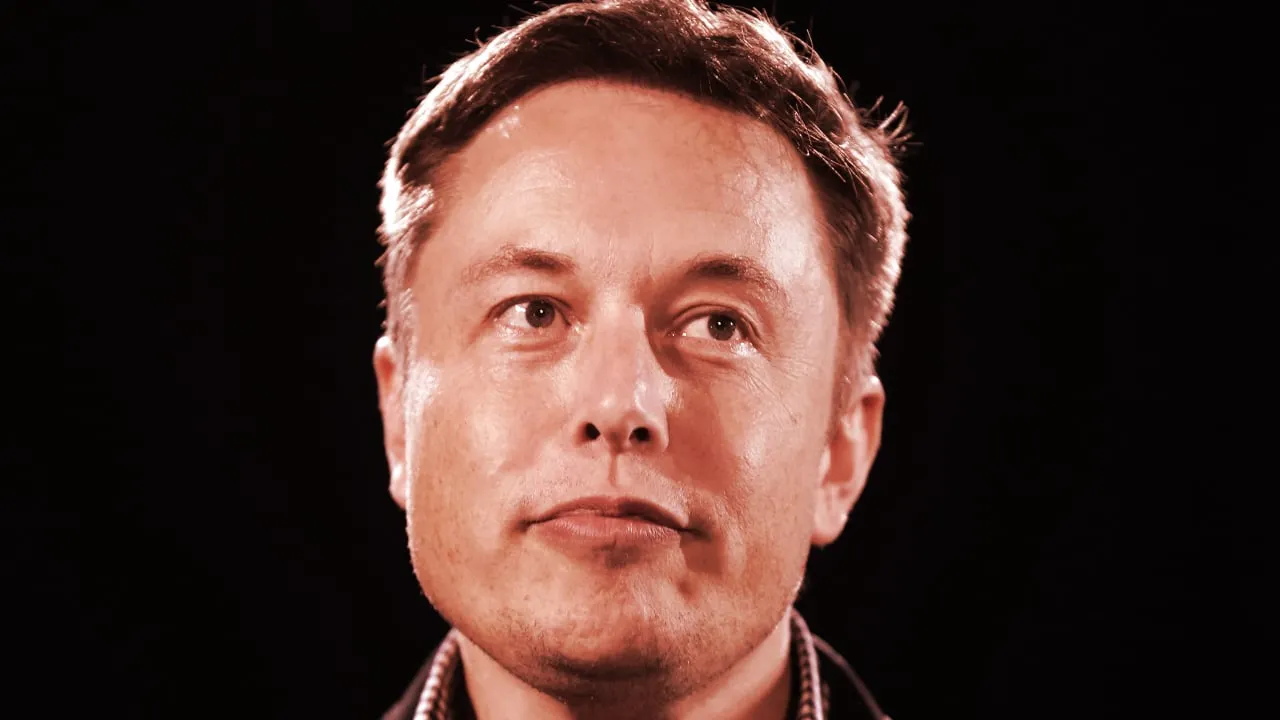In brief
- Elon Musk will not play a formal role in the Bitcoin Mining Council, the group clarified today.
- Musk initially teased the group's formation in a tweet last month.
- The Council aims to promote Bitcoin "energy usage transparency."
Elon Musk likes to keep himself busy—he cofounded PayPal, runs the multibillion dollar car company Tesla, and wants to "protect the future of consciousness by making life multi-planetary” through aerospace company SpaceX.
But galvanizing Bitcoin miners toward a cleaner, more energy-efficient future won’t be on his to-do list—not formally, anyway.
The Bitcoin Mining Council, a group of energy-conscious North American Bitcoin mining companies first revealed by Musk in a tweet in late May, debuted today and clarified that Musk will have “no role” at the Council.
Musk’s involvement with the group appears to have begun and ended with the “educational call” that the Tesla CEO held with the group on May 24, which he described as “potentially promising.”
The man who orchestrated that meeting, MicroStrategy CEO Michael Saylor, announced the Council’s launch today in a tweet, describing the group as “a voluntary and open forum of Bitcoin miners committed to the network and its core principles.” Saylor added: “We promote transparency, share best practices, and educate the public on the benefits of Bitcoin and Bitcoin mining.”
Bitcoin mining is an energy-intensive process that requires large amounts of computational power. It’s how new Bitcoins are created and the network is sustained. Critics decry it as wasteful, while proponents say the benefits of decentralized, stateless money are worth it.
Musk, whose car company Tesla had purchased $1.5 billion worth of Bitcoin in February, appeared to have been swayed by those critics when on May 12 he announced Tesla would no longer accept Bitcoin as payment, citing environmental concerns. "We are concerned about rapidly increasing use of fossil fuels for Bitcoin mining and transactions, especially coal, which has the worst emissions of any fuel,” he said at the time.
The move shook the market. The price of Bitcoin fell from $56,000 to $49,000 by that evening, a drop of 12.5%. Bitcoin hasn’t traded above $50,000 since. Today, 1 Bitcoin is worth around $35,000.
Inviting Musk to join the initial call with miners appears to have been Saylor’s way of extending an olive branch. Saylor’s MicroStrategy is heavily invested in Bitcoin—it holds roughly $3.3 billion in Bitcoin on its balance sheet, according to Bitcoin Treasuries, and recently announced plans to buy a half billion more. Meanwhile, Musk’s tweets routinely move the Bitcoin market—up or down—and he knows it:
But the Bitcoin Mining Council, in its current form, may not do much to assuage Bitcoin’s staunchest critics. The group, which some Bitcoin adherents initially chastised as a centralized attempt to control the mining industry, won’t actually impose energy standards for its members: “The BMC is not designed to have ‘teeth’ or tell anyone what to do,” its website explains.
Rather, the Council encourages its members to share their “energy mix” and power consumption data for “research and educational purposes.” For now, Saylor’s mining group is hoping that alone is enough to reshape the public’s perception of Bitcoin’s environmental impact.
Or, perhaps at the very least, Elon Musk’s.
Daily Debrief Newsletter
Start every day with the top news stories right now, plus original features, a podcast, videos and more.

